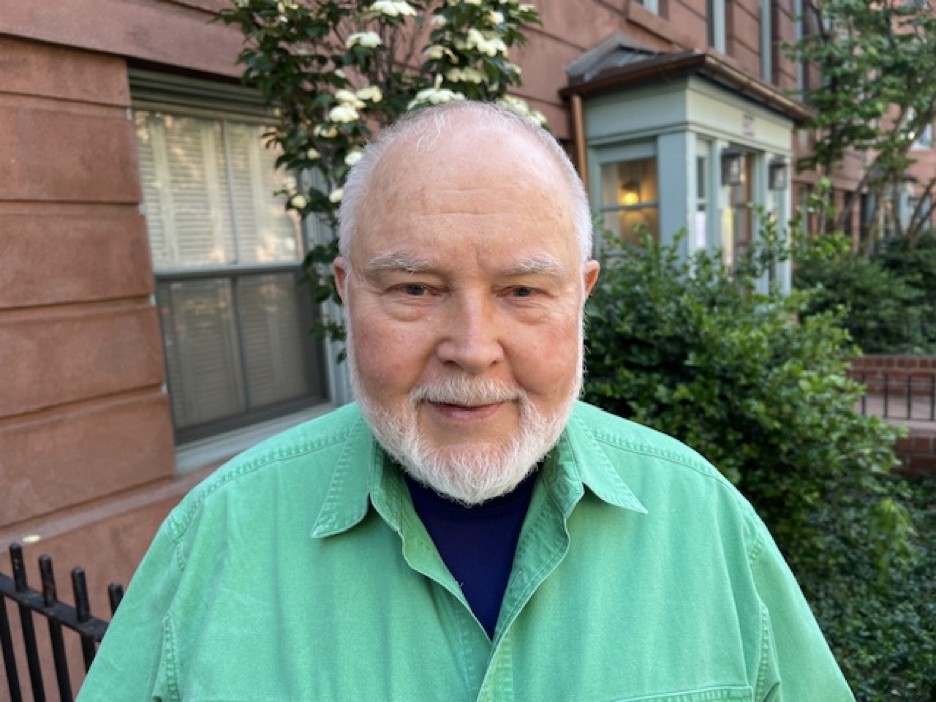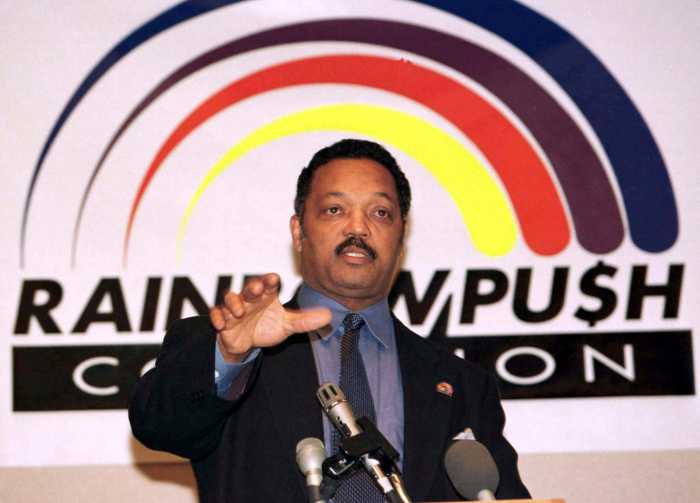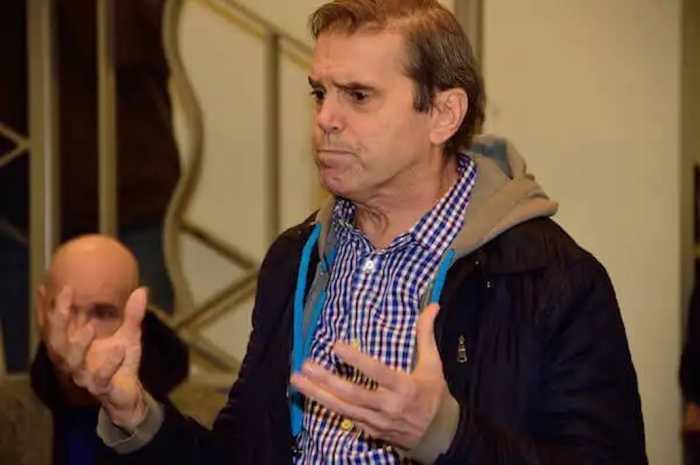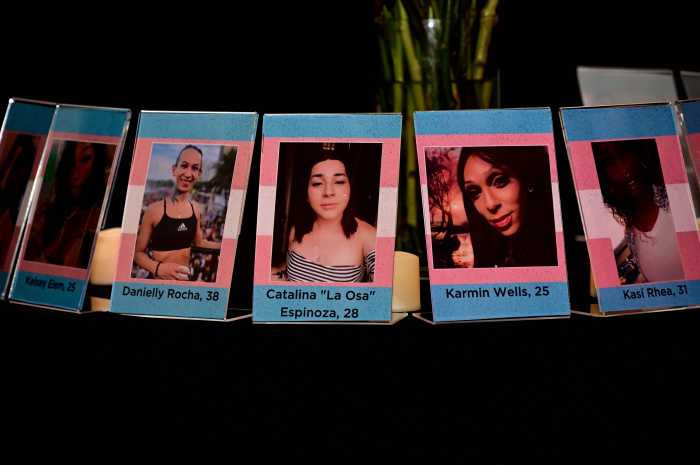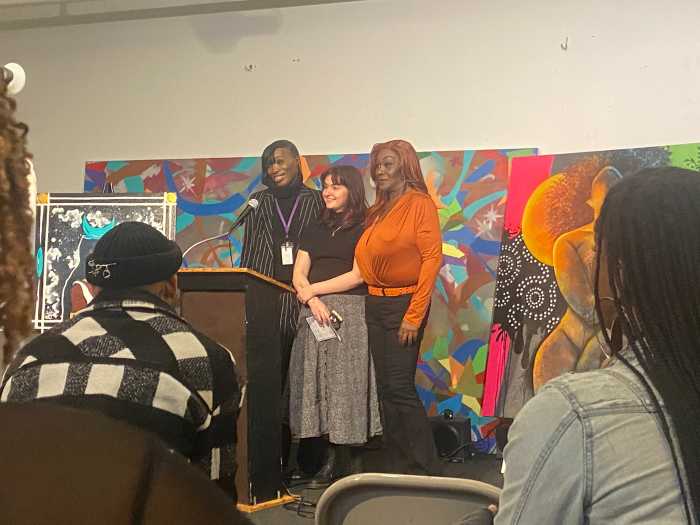If you live in rent stabilized housing in New York State, you owe the affordability of your apartment in large part to the tenant movement leadership of Michael McKee for more than half a century. If you were able to succeed your late same-sex partner in your stabilized apartment, McKee played a role in that, too, winning a succession case when his then-partner, Louis Fulgoni, died of AIDS in 1989.
Now McKee is gone, too, dying on Oct. 21 after a long fight with brain cancer, survived by his husband, Eric Stenshoel. McKee was 85. His life will be celebrated on Wed., Dec. 3 at his home parish of Saint Peter’s Church, on Lexington Av. and E. 54th St., with doors opening at 4 PM and the program with music, food, and speakers starting at 5:30 PM. At McKee’s direction, his memorial will be a fundraiser for Tenants PAC, one of several tenants rights groups he founded. For ticket info, click here.
As former New York City Council Speaker Corey Johnson said, “We got arrested together outside Gov. Cuomo’s office in 2019 pressuring him to strengthen the rent laws” — the successful culmination of a decades-long fight by McKee to do so once the state legislature was firmly in Democratic hands in both houses.
But Johnson said, “He was there for me in numerous ways beyond politics.” They had met as neighbors in Chelsea in 2012 and McKee took him out to lunch, marking the beginning of “a deep friendship” with a leader who affectionately called him “my dear boy.”
“He was there for me when I experienced breakups or was suffering a personal loss,” Johnson said. “And during my first years in the Council I got the flu really badly and was so unbelievably sick that I couldn’t leave my apartment. Every single day for two weeks Michael and Eric would come by with homemade soup and medicine.”
McKee was always concerned about his neighbors. Burt Lazarin, a longtime community board member, said, “Michael and I were the founders of the Chelsea Gay Association in 1978,” the first of the neighborhood gay groups that emerged in New York at the time. They were among “many other newly arrived gay residents” and wanted “both to provide us with connections and to create a gay presence,” Lazarin said. They reached people through fliers — created by McKee’s artist partner Fulgoni — posted around Chelsea saying, “Come meet your neighbors.” He said that “Tom Duane, Michael Shernhof, and Richard Foltz were some of our early members.”
The group lasted until 1983, marched in Pride, and helped work for the city’s gay rights bill that didn’t pass until ’86.
“Many connections were made over the years and people went off together, as friends, as romantic couples, as founders of other organizations,” Lazarin said.
Former State Sen. Tom Duane wrote on Facebook, “The ‘Steering Committee’ (we were a non-hierarchy governance organization) of the Chelsea Gay Association met in Michael McKee’s living room. We may or may not have been smoking pot, and after the meeting, we would all go out and put flyers on lampposts, announcing details for the next general meeting or event. That was our Twitter/X. And that was organizing.
“I was sad to hear of Michael’s passing last week,” Duane added. “Michael was the greatest at teaching organizing and he taught me organizing by example and because of his wonderful demeanor. Chelsea has lost a beloved citizen. Tenants, but not only tenants, so many citizens lost a great warrior. I’ll miss his leadership absolutely, but I’ll miss his sense of humor and his laughter most.”
Johnson also paid tribute to McKee’s tenant movement leadership. “From 1970 to 2025 almost every single pro-housing strategy law or ordinance — not just in the city but in the suburbs — emanated from Michael McKee’s mind and spirit,” he said. Indeed, McKee was active in the Met Council on Housing from the late 1960s and founded, among other groups, the NYS Tenants & Neighbors Coalition and Tenants PAC, groups that endure to this day.
Councilmember Erik Bottcher, also a Chelsea resident and now a candidate for the Democratic nomination for the US House, said, “The only time I’ve ever been arrested was with Michael McKee in 2015. We drove up [to Albany] together in his car to practice civil disobedience outside Governor Cuomo’s office, demanding that the rent laws be strengthened. Mike had just had leg surgery, and as we sat on the floor, one of my jobs was to make sure no one stepped on his leg. Two years later, the rent laws were finally reformed, helping to keep countless New Yorkers in their homes. Thank you, Mike McKee.”
Bottcher said, “Mike could be fierce and intimidating when he needed to be, but to those who knew him, he was a loving teddy bear who would do anything for his friends.”
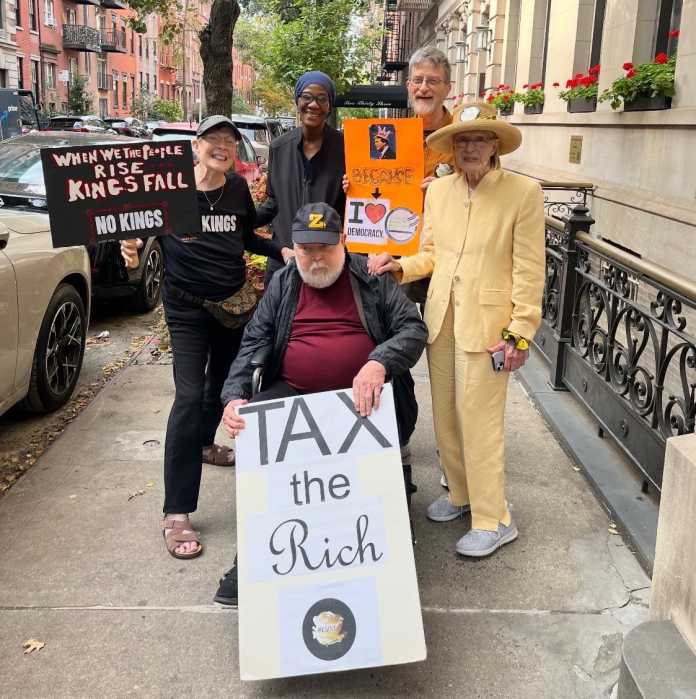
Edrie Cote, former president of the London Terrace Tenants Association in Chelsea, said, “Michael not only mentored countless members of the tenant movement, he was the best friend anyone could ask for.”
Assemblymember Tony Simone said, “I first met him working for the late State Sen. Catherine Abate as a staffer. He got 1,000 people bused up to Albany to advocate for saving the rent laws at the time.
“Every year,” Simone said, “he would text West Side legislators: ‘I have an army coming’ to get them to implement Good Cause Eviction legislation.” And when it was not as strong as he liked, he made us go back to make it stronger. And we would.”
“Michael McKee was a hero to me,” Simone, a tenant activist himself, said.
State Sen. Brad Hoylman-Sigal, soon to be Manhattan borough president, said, “Michael was one of the driving forces behind our anti-SLAPP bill in Albany. At the time I wrote the legislation, Mike was being sued personally for $40 million by the landlord lobby in a frivolous lawsuit meant to derail his tenant activism. Mike didn’t back down and won in court, including his attorneys fees, which served as an important test case for our new law. Good luck trying to silence Mike McKee!
“I was always inspired by his fighting spirit,” Hoylman-Sigal added. “As a younger gay man in politics, I admired Michael in all the ways he organized rent rallies, right down to the distinctive typeface he used on the signs. Michael introduced me to Albany. My first trip to the capital was on a bus ride for Tenants & Neighbors organized by Michael McKee. Mike was a role model for me, in addition to his husband, Eric, and he being friends with my husband, David, and me.”
McKee wasn’t just a fighter — he was a lover. He was so devoted to the memory of his late partner, Louis Fulgoni, whom he met in 1974, that he recently put together a website — louisfulgoni.com — of Fulgoni’s art work and produced a television program on Manhattan Neighborhood Network on his legacy. And when Fulgoni died in 1989, he did sue to keep the rent-controlled apartment they shared at a time when gay partners had no succession rights.
Veteran tenant lawyer William Gribben said, “Mike was facing eviction after Louis’ death. He was not on the lease, and when his eviction case started, Brashi v. Stahl, the case that ultimately gave surviving gay partners succession rights, had not been finally decided, it was heading to the Court of Appeals. In a court appearance in Mike’s case, I asked the judge to hold off on any eviction until the Court of Appeals ruled. The judge said he would wait for a decision in Brashi, but told me that there was no way the court would rule in a manner favorable to gays, and that if he was wrong, he would take me out for a steak dinner.
“Brashi did establish a right of succession [for same-sex partners],” Gribben said. “The judge in Mike’s case ruled in his favor. I did not contact the judge for that steak dinner.”
Eric Stenshoel, who married McKee in 2009 and survives him, said, “We met at a leap day party in 1992 and found an instant bond, partly because we had both lost our first life partners to AIDS, to the same primary infection — cryptosporidium. We talked late into the evening until he said he had to go home because he needed to visit his mother-in-law the next day. I was taken aback until he explained that he meant the mother of his late partner, Louis Fulgoni.”
Stenshoel praised McKee for being “ahead of the curve” by appropriating words such as “husband” and “mother-in-law” before gay people were legally entitled to them, further demonstrating his commitment to family and friends.
“When Louis was hospitalized, Michael moved into his room at the hospital until the end,” Stenshoel said. “Then and for years to come, Michael visited Louis’ mother Mary on Staten Island every weekend to take her shopping and to doctor’s appointments. I was quickly brought into the extended family and we took Mary on trips upstate, to Texas and Minnesota to see our families, and twice to Italy to visit her relatives in Bardi. He delighted in mixing our family and friends with Mary’s family and friends at holiday feasts and cookouts at her house every year until her death in 2009. The combination of fearless trailblazing and joy in bringing disparate people together made him a wonderful organizer.”
Michael McKee was born on Dec. 3, 1939 in Fort Worth, Texas into a military family that moved around the US and Japan. He graduated from Baylor University and got a master’s degree in French from Middlebury College. He moved to Paris in 1963 to become a film editor, and while he couldn’t secure a work permit, he steeped himself in French cinema.
He moved to New York in 1969, working as an editor for a film company. But a fight with a recalcitrant landlord in 1969 led him into a rent strike and tenant organizing.
In addition to Stenshoel, McKee is survived by his brothers, David Eugene McKee and Gerald Wesley McKee and numerous nieces and nephews.
In a 2019 interview for Tenants PAC, McKee offered words that speak to our perilous time: “You can’t do community organizing unless you have an optimistic outlook. It’s too hard. There are more defeats than victories, which is why a lot of people drop out. But I do fundamentally believe that things have gotten better and will get better still. You have to take the long view.”

